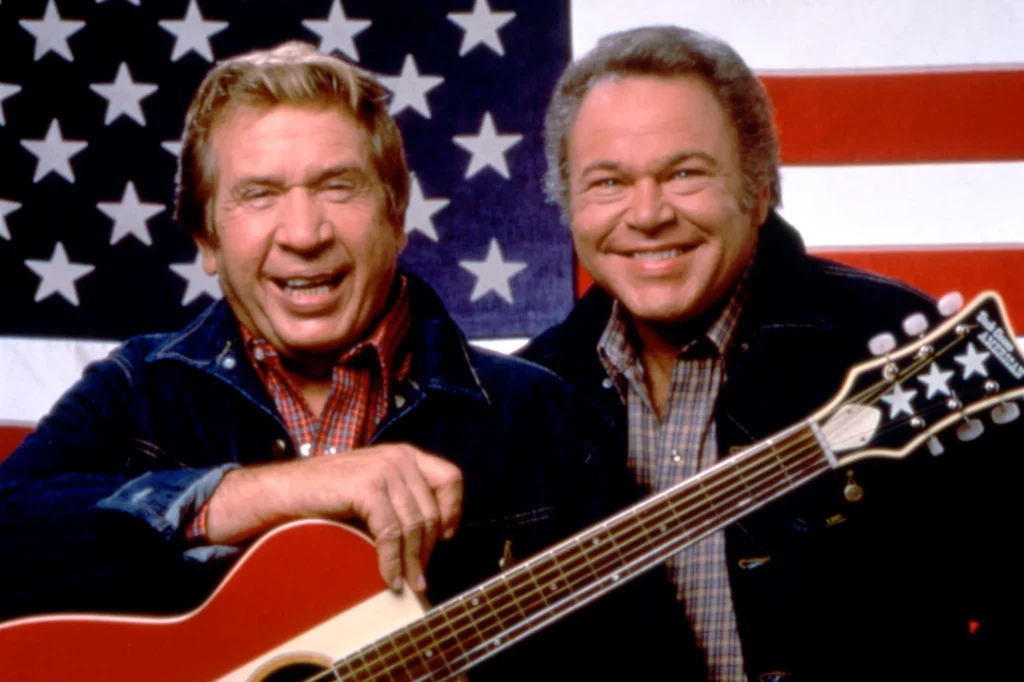
A Joyful Rebellion Against Hardship, Sung with a Smile and a Steel Guitar
Buck Owens‘ rendition of “Rollin’ in My Sweet Baby’s Arms” captured the essence of Bakersfield country at its most exuberant and unvarnished. Featured on his 1971 album “Ruby (Are You Mad)”, the song wasn’t released as a charting single under Owens’ name, yet it remains one of the most enduring tracks from his storied catalog. Its impact lies not in commercial conquest but in cultural resonance: a jubilant twang of defiance echoing across generations of honky-tonks and living rooms alike.
This rollicking tune is a traditional bluegrass number with roots reaching back into the early 20th century, long before Owens electrified it with his signature Telecaster-driven sound. While the song had already been recorded by legends like Lester Flatt and Earl Scruggs in the 1950s, it was Buck Owens, with his Buckaroos and that indelible Bakersfield polish—or rather, lack thereof—who infused it with an electrified pulse that transcended its Appalachian origins. His version doesn’t just cover the song; it revitalizes it for a new era of country fans weary of Nashville’s polish and eager for something raw, real, and rebellious.
At its lyrical heart, “Rollin’ in My Sweet Baby’s Arms” is both cheeky and cathartic—a brash dismissal of familial obligations, financial hardship, and societal expectations. The narrator doesn’t wallow in lost love or regret; instead, he shrugs off his troubles with a grin, choosing instead to revel in the simple joy of being close to someone he loves. “I ain’t gonna work on the railroad / I ain’t gonna work on the farm,” he declares—not so much out of laziness as out of liberation. In a few short verses, we are transported into a world where love is easy, responsibilities are shrugged off like an old coat, and life is best lived in motion.
Owens’ interpretation transforms what could be a quaint relic into something alive with muscle and mirth. The track races along with brisk banjo rolls, tight harmonies, and crisp percussion—hallmarks of Owens’ pioneering Bakersfield sound. That sound was a deliberate counterpoint to the lush orchestration of Nashville country at the time. Where others leaned into string sections and syrupy ballads, Owens pulled from rock ’n’ roll energy and Western swing tradition to craft something leaner—and truer—to his California roots.
Culturally, Owens’ take on “Rollin’ in My Sweet Baby’s Arms” embodies the spirit of working-class America at the dawn of the 1970s: skeptical of institutions, fiercely independent, and unapologetically joyful in the face of adversity. It’s no coincidence that this song has remained a staple at backyard pickin’ sessions and late-night bar gigs—its refrain is an anthem for those who’d rather dance their way through hard times than be crushed by them.
In the canon of American music, songs like this don’t survive because they’re trendy; they endure because they speak to something elemental. And when sung by Buck Owens—with that nasal drawl full of character and conviction—they do more than endure: they shine.